James Ussher Library, Trinity College Dublin
The new Ussher Library in Trinity College initiated as an international architectural competition and won in joint design collaboration between McCullough Mulvin Architects and KMD Architecture provides 750 undergraduate reader places and space for 350,000 volumes in a library finished in exposed boardmarked concrete and granite. The concept establishes three prismatic sculptural blocks on a podium set north-south across the site. The two longer blocks are connected by an atrium; the taller, dedicated to book storage, is closed and stone-clad ; the other, more dynamically shaped , contains reading rooms with views over College Park.
The third block is a book conservation laboratory. Each block is served by a core at one end anchoring the plan; each is designed as a solid planar element without advance or recession; the line of stone cladding is carried through into the atrium in timber panelling. The atrium glazing is perceived as an independent shard-like element, while the conservation block roof is an origami-like folded plane of glass and metal. The new building forms a functional unit with the existing Berkeley and Lecky Libraries; all are connected under podium level and the Berkeley Library is retained as the main entrance to the whole complex with a new staircase descending to an orientation space serving all three. The Ussher stands in a very strong urban context, occupying an edge condition between Trinity College and the city.
It keeps to the grid of the College buildings while recognising the geometry of Nassau Street. The building is a gateway to the university three books forming open space between them which frame views and routes from the city. By its shape and location, the project establishes two strongly configured urban spaces at podium level one against the rear of the Berkeley, open at the corners in the Trinity manner, with generous steps from the park and library square; the other between the new library and the street, which will serve as a public access to the college.

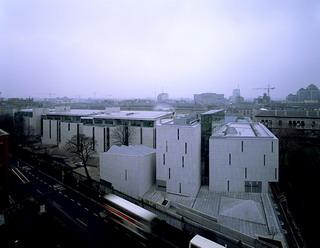
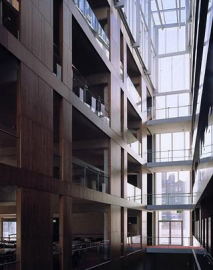
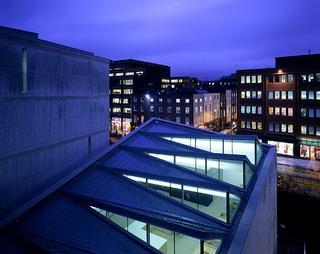
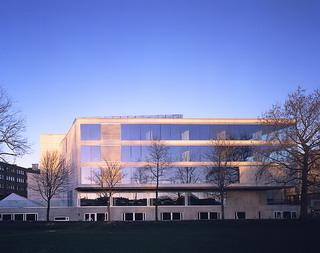
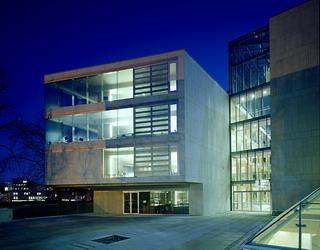
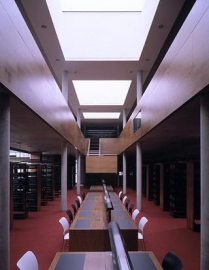

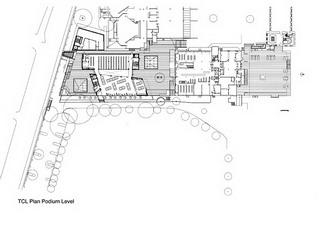
 copy.jpg)
